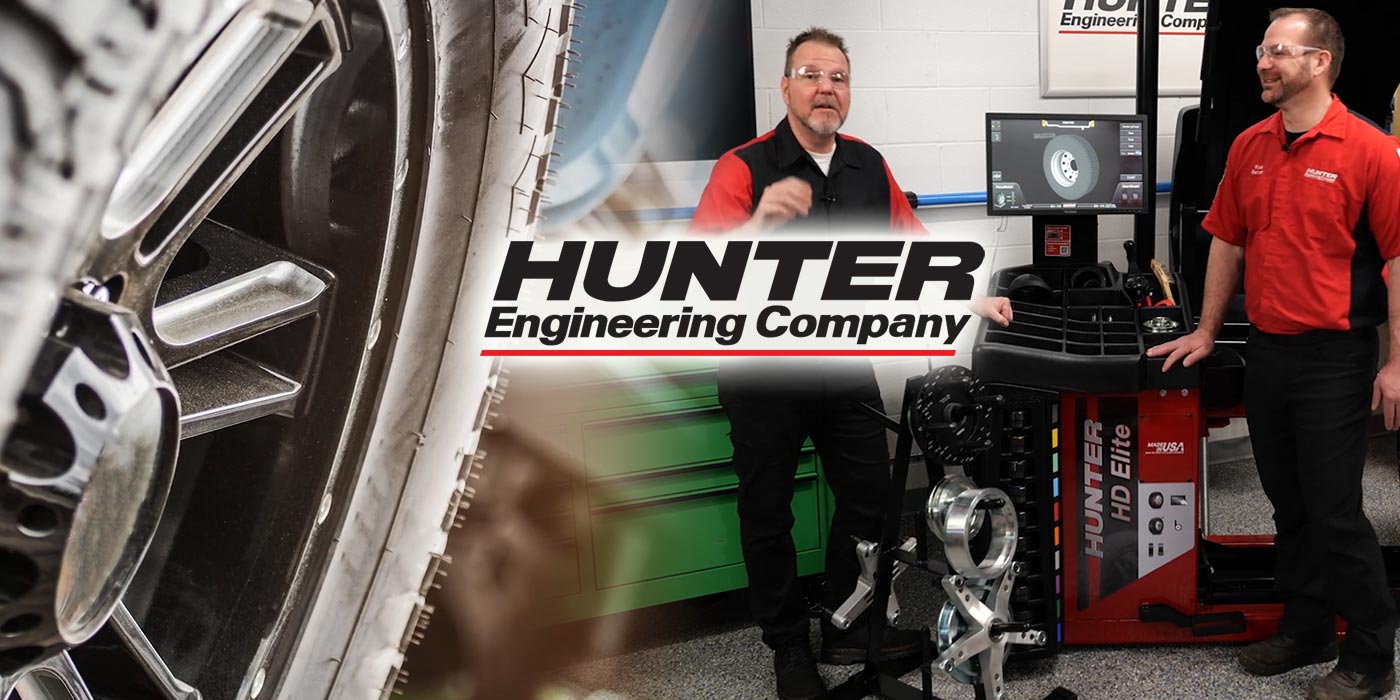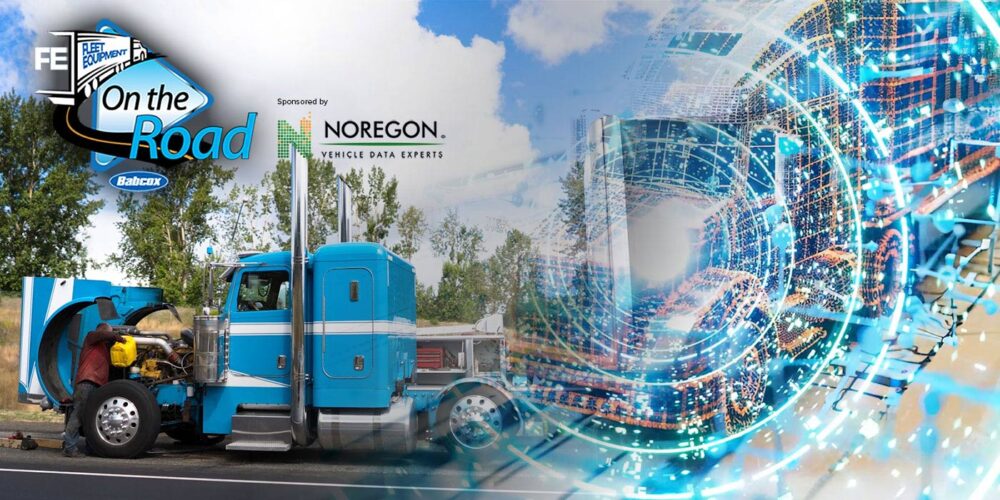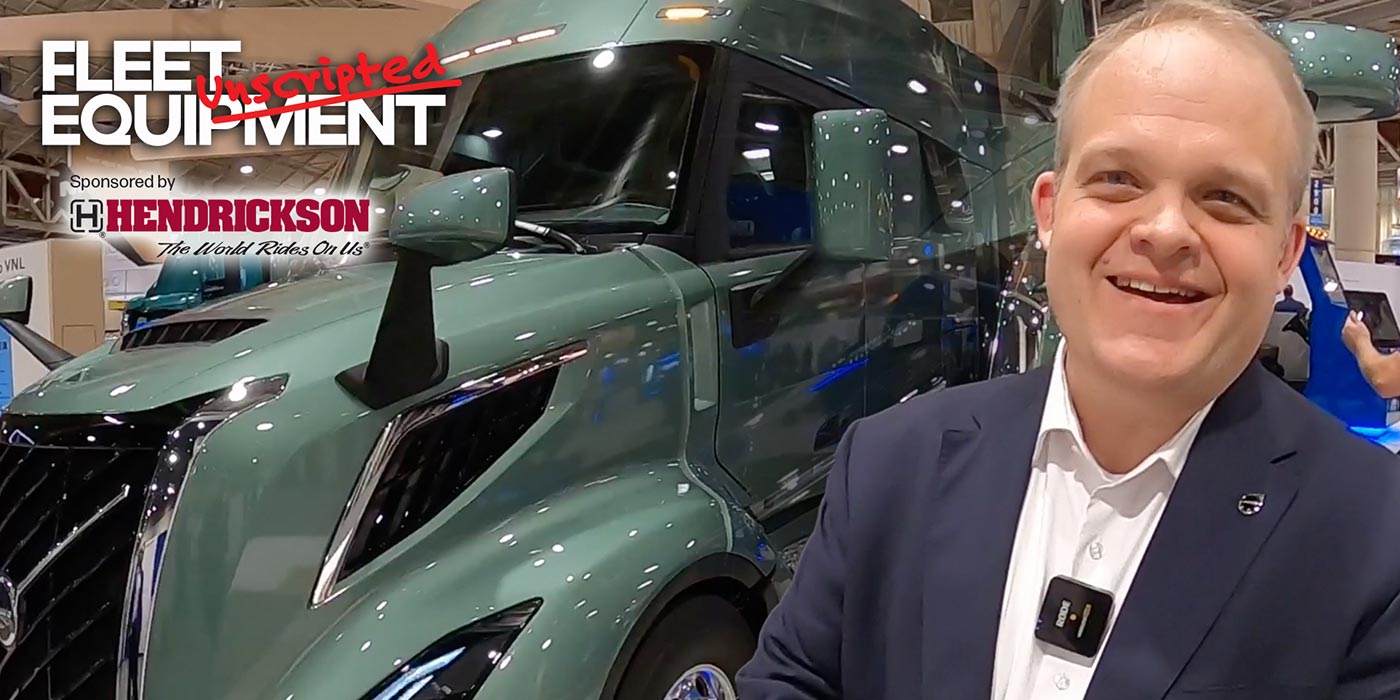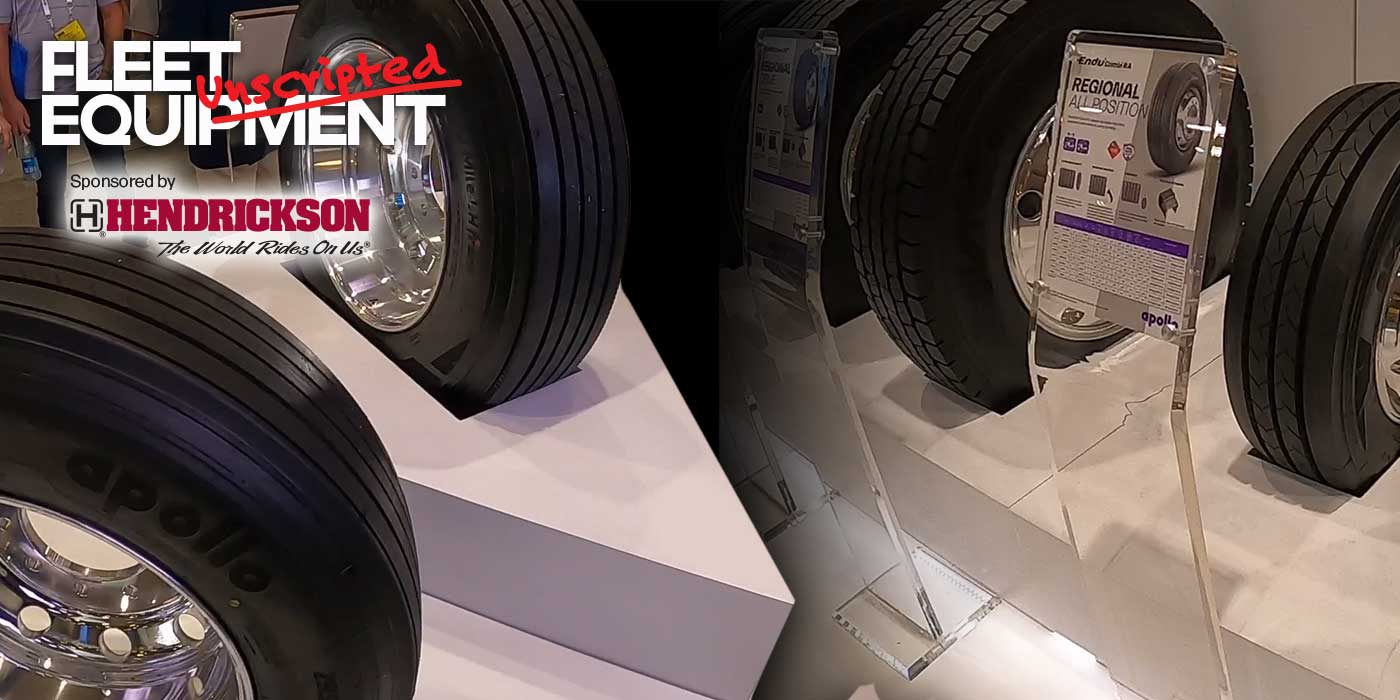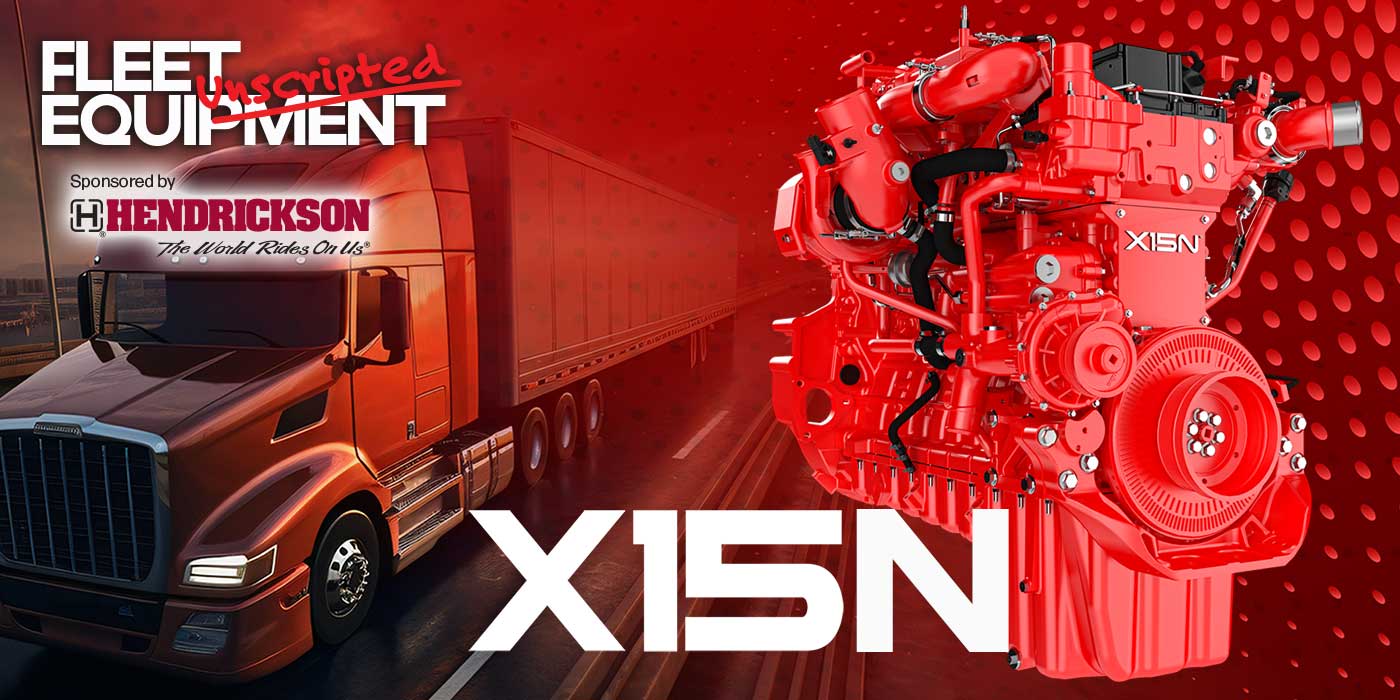Cargo theft is a very real threat. Right now, trailer loads are likely under surveillance. Organized crime rings record routes, watch truck stops, monitor driver and fleet behavior that leaves trailers unsecured and then they pounce. These aren’t smash and grabs where the perps hope they get lucky. These are well-timed, orchestrated events that target your trailers. This isn’t meant to be a scare tactic. It’s just a reality. Understanding it’s a reality means that you can prepare for it. Enter the right truck insurance.
“There are typically two different coverages to ensure your cargo or your trailer load, but it depends on whether you’re hauling your own or the goods of someone else,” explained Tanya Pecorari, producer, Graham Co., during our video interview. “Motor truck cargo protects the cargo you transport for your clients that are in your custody. The majority of companies are going to require this coverage when you’re hauling for them. This is going to help protect your financial impact of a loss, but also protects the relationship with the company because no one wants an uncovered claim.”
I caught up with Pecorari to talk about the insurance coverage that can give fleets piece of mind, and not just for cargo theft, but loss prevention overall. We talk about everything from what fleets should look for in their policies to the role of cyber insurance coverage. Watch the video above for all of her insight.
More truck insurance talk with Tanya

No script? No plan? No problem. Welcome to Fleet Equipment Unscripted—the video interview series that connects you with the greatest minds in the heavy-duty trucking world.
Bookmark the Fleet Equipment Unscripted page to catch all of our Unscripted episodes, and subscribe to our newsletter by clicking here to have the latest news and in-depth trucking stories delivered straight to your inbox.
Fleet Equipment Unscripted is sponsored by Hendrickson.
Here’s the transcript
Jason Morgan:
Hi everyone. I am Jason Morgan content director for Fleet Equipment and welcome to Fleet Equipment unscripted. Today, we’re talking with Tanya Pecorari, producer at the Graham Company. Tanya, thanks for joining us and being on again.
Tanya Pecorari:
It’s good to be back. Thanks for having me again.
Jason Morgan:
So we are going to go through some more insurance topics and I love this because it’s not a topic that I get to talk about a lot or even really understand. And it’s like a bizarre complicated world. So I’m glad you’re here to be my insurance translator and how we can protect fleets. One of the things that we’re talking about and hearing a lot about are trailer loads, right? Always a target for nefarious behaviors and illicit things. We want to make sure fleets are protected. Can you give us a basic of maybe what the insurance load options, coverage protections, that kind of thing?
Tanya Pecorari:
Absolutely. It’s a great question. And I’ll start with an insurance 101 for what we’re going to call motor truck cargo or trip transit coverage.
Jason Morgan:
Perfect.
Tanya Pecorari:
There’s typically two different coverages to ensure your cargo or your trailer load really as you called it, but it really depends on whether you’re hauling your own or the goods of someone else. So for the majority of the time, I’m going to probably spend on motor truck cargo, which is goods of others, just because I feel like it’s good for the audience here, but essentially motor truck cargo protects the cargo you transport for your clients that are in your custody. And so the majority of companies are going to require you when you’re hauling for them to carry a certain amount of limit in the event that a loss happens, right? And so this is going to help protect your financial impact of a loss, but also really protects the relationship with the company because no one wants an uncovered claim.
Tanya Pecorari:
It’s bad for your business. It’s bad for their business and it’s just bad for relationships altogether. So when it comes to motor truck cargo insurance, each insurance policy is going to be structured differently, but the majority of policies will protect you for perils such as fire, collision, water damage, refrigeration failure. And what everyone is talking about nowadays is a loss cause by theft. So if you’re hauling your own goods, typically you can find coverage for trip transit, it’s called. And it’s an extension on your property policy. So different than when you’re hauling goods for others, but if you’re hauling your own goods, you can get this through an extension on your property policy.
Tanya Pecorari:
And because of everything that we’re hearing, I think it’s a good idea to talk a little bit about theft, right? That’s what we hear. We see a lot of on the news, all these cargo, whether it’s on the rail, whether it’s tractor-trailers, you see a lot of these loads being broken into and you see some of the product still there. I’m sure some of the product is being sold elsewhere. And so it’s really good I think to focus on this peril, that’s theft. Now for your motor truck cargo policy and for the property and transit policy, your standard insurance agreement is going to exclude any coverage from employee theft, right? So there are coverages for if someone external from your company is going to happen to steal your product, but from an inside job. So criminal activity by one of your employees is typically excluded.
Tanya Pecorari:
So think about valuable commodities that can be liquidated fast, whether it’s an employee theft or if it’s a non-employee theft, copper pipes, beer, retail goods, those are going to present a higher risk of theft. And so depending on what insurance carrier you’re working with, you can sometimes find coverage under your motor truck cargo insurance. But if not, to bridge that gap, what we recommend is finding coverage or purchasing a crime policy, which would cover your employee dishonesty. And so another, what I think is an important exclusion to talk about is theft from an unlocked or unattended vehicle in a trailer, right? So at a location for typically more than 72 hours, that’s going to be excluded, but an unintended vehicle is also going to be excluded. You know, I drive a lot for work. Sometimes I’m at these rest stops and I don’t see anyone. And I see these guys jumping out, they’re walking around, they’re talking to their friends that they usually see, that poses a pretty big, significant risk.
Tanya Pecorari:
And what I’ll talk about later is that you have people, an organized crime that are going to watch after and are tracking and they are doing surveillance. So if there’s a trend, someone’s going to find an easy way to steal your product or even steal the entire truck. Right? That’s something that we see too. So what I think is most important here is really just work with your broker to understand your operation. Know what’s important to you, learn a little bit about your business and make sure that they understand what’s covered on your policy and what is not covered on your policy. You never want to be surprised when something happens and think you have insurance that’s going to cover it and then you end up finding that it’s an uncovered peril and now you’re out a certain dollar amount and then potentially you have a client that is extremely unhappy.
Jason Morgan:
Right. Right. No. And I mean I also get that from the fleet point of view. This is not the most exciting thing to talk or it’s very exciting in a very different way because I don’t even run a fleet and this is all kind of terrifying to me. I mean the inside job stuff. And I do want to get to the organized crime stuff. I’ve written about it before is like, yeah, there’s a lot of information out there and that is whether it is kind of done by people at the location, cybersecurity, all that stuff. But let me back up here, let me back up here, and just kind of going through, okay. So we want to make sure that we’re talking with our partners, we get the coverage we need so that we can have peace of mind.
Jason Morgan:
And it’s good to reassess this stuff every so often because life changes. The world changes seemingly rapidly every day, right? So we want to make sure we have the right coverage there and we’ve seen trailer thefts start to go through the roof here over the past two years with the start of the pandemic. So you want to make sure you have that proper coverage and lots of layers there. So once I get that set, okay. So lots of great bullet points that you provided there. When I do have a loss, let’s say on the theft, because it is a hot topic here. When I do have a loss, how can I continue to work with my provider? What information should I be gathering to be able to share to my provider to make that claim and process less painful than it just inherently is?
Tanya Pecorari:
Right. Of course. So there’s four conditions I will say when you’re looking at filing a claim for any type of a loss, and I know you just said theft, but I’m just going to kind of go high level on what these four conditions are. One, there must be a physical loss to the property. So if it’s damaged or stolen, of course, you’re going to have coverage, but how was it damaged? So if it was ruined because of how the truck handled when driving, you’re not going to get coverage for that. So it must be a physical loss to the property. It has to be unanticipated and accidental. It also has to be from an outside force. And how I talk about this with my clients and perspective clients is that if you are hauling food products, for instance, and you have avocados and they over-ripen in transit because they’re just perishable by nature, you’re not going to get coverage for that.
Tanya Pecorari:
You know, that’s not what your insurance policy is for, but let’s just say you’re hauling milk and you have a refrigerated truck and for some reason that refrigeration failed, then you would get coverage because of that refrigeration failure coverage. Again, all of this comes down to making sure that’s how the policy is structured. So working with your broker to make sure, but if you are in the business of hauling food and you have refrigerated trailers, then most likely you should have that coverage put on. And then lastly, I think it’s pretty self-explanatory that the loss must occur while you’re in transit, right? You have to be driving and it has to be in the trailer. And so for the next topic really I wanted to talk about was once a loss happens, what do you do?
Tanya Pecorari:
And there’s going to be unfortunate situations where a loss happens. I would love to say that all of my clients have never seen a loss, but there are situations outside of everything that you can think of where a loss could happen. So if something does happen, I would say first and foremost, you’re going to want to minimize the loss. So your insurance policy is going to say, and it’s going to read something along the lines of, you must take the reasonable steps to minimize any additional damage or prevent additional damage. So simply removing the product from the trailer or unpackaging, if that’s possible. Part of that is minimizing any future loss. Next, you’re going to want to duck the loss, right? You’re going to want to take photos right away. You’re going to want to determine if possible what the quantity that is either stolen, loss, damaged, keep any receipts that you have with your customer, with your client, all of those documents, make sure that you have, or you’re able to get easily.
Tanya Pecorari:
And then I wouldn’t be doing my job if I didn’t say that, why all of this is happening, you should absolutely be notifying your insurance broker and/or the carrier because in certain situations where it’s a tough loss, whether it’s a collision, the product is all over the highway, which we hear about all the time. Potentially it’s a really tough claim. You know, people are injured or it’s a really bad theft. They might want to deploy additional resources out to the scene as soon as possible. So as soon as you can, get on the phone with your broker, absolutely do that. And then they can determine when to reach out to the carrier to let them and notify them of the potential claim.
Jason Morgan:
Right. For sure. Because I loved how you just put it in bullet points here and just laid it out because as you were going through those things, like my stomach was started this is all hypothetical. This isn’t happening to me, but I feel the gut-punch of the, oh God, this phone call just ruined my week, my month, my year, like this is just terrible. And being on the receiving end of it, you feel like the world is over. The world has ended and now I have to figure out and deal with this. But in talking with a good partner that can okay, just get this, get this, get this, get this. I did want to go back real quick. Because I wanted to pick at the refrigeration example if I could just to get a better understanding over here. So you said if I’m hauling milk, refrigeration fails that I can potentially recoup losses there. Right?
Tanya Pecorari:
Keyword is potentially.
Jason Morgan:
Right. Okay.
Tanya Pecorari:
Yes.
Jason Morgan:
Yes. That’s what I was going to ask. So then as a carrier, for example, I’m guessing if I forgot to put diesel in the refrigeration unit, does that cover if it fails because it ran out of gas or does it have to mechanically fail? Do I have to have any preventative maintenance records to provide, how do I document the failure? And you don’t have to go into the details of that, but those are the things that go into mind of the nuances. How do I talk about those nuances?
Tanya Pecorari:
I would have to look at a policy specifically to be able to say what exactly is covered and what exactly is uncovered. So for instance, the perishable products, or like I said, the example of the milk being ruined obviously depends on what exactly the definition of the loss is. Who writes the policy, there’s so much that goes into it. That’s why I said I think it’s very important for you to work with your broker to be able to say I know exactly what’s being covered and what it’s not being covered. So it’s tough to be able to say what specifically would have to go wrong, whether it was the diesel, whether or not it was tampered with. Whether or not the driver did something wrong. You know, I know one example is setting a refrigeration to plus 32 instead of negative 32, you know?
Jason Morgan:
Oh, gosh.
Tanya Pecorari:
Oh, which, which you do hear about, unfortunately, do hear about that. And so I hate to say that it depends, but when it comes to reading a policy, it all really depends on how it was structured, because what we try to do if possible is manuscript some of the wording to make sure that it covers each business appropriately, but it depends on how far the carrier will go.
Jason Morgan:
Right? No. So I mean, it’s probably a good thing to have fleets do what we are just doing now, let me throw some hypotheticals at you and see if my policy cover it or doesn’t cover it because understanding how the policy is written and the legalese that goes into that can be pretty difficult. But putting the scenario in there and their protections is definitely important. I do want to get back to something you mentioned earlier too, on the protections, going back to the cargo theft and we know that organized crime is out there. We know for those high-value loads, they’re getting information. You’ve kind of talked earlier about the inside job aspect, which is scary enough, but is there a cyber security or insurance benefit there too? I know even at my company, we have cybersecurity training every six months. It’s a big topic, everybody’s talking about it. What do we offer on the insurance side to cover us for that in terms of the load losses?
Tanya Pecorari:
Yeah. As, I mean, you’ve mentioned it, it’s something that’s definitely becoming more and more popular. It’s been happening though for 20 to 30 years, we see organized crime, it’s a lucrative and it’s a low-risk revenue stream for them. Right? And so, as you mentioned, it’s a lot of the time getting information from the inside. And then they provide surveillance on the warehouse and the tracking when the loads are leaving and how often all of that. But there is a definite concern on whether or not these organizations can hack into a company system and gain access to the load information. Now what they do with the information is the real question. And so this is why cyber insurance covering something like someone hacking into a system and stealing the load is tricky.
Tanya Pecorari:
So are they manipulating data so that the drop off locations are different or they’re changing around the purchase orders or the company is different, is that the way that they’re hacking into the system and gaining access to the goods or are they getting into the system, looking around doing some snooping and finding out, hey, we can intercept this truck while they’re at this rest stop or at this location? So it’s tough. Right? And the whole purpose of cyber insurance really is the investigative part. And how do you that someone has either logged in and was snooping around or someone logged in and started manipulating the data and changing out purchase agreements. So it is challenging. Cyber insurance is a newer product and there’s been an uptick in claims in the last five or so years.
Tanya Pecorari:
And so the policies vary very significantly. I mean, each carrier has a very different policy and the forms are different and the language is different and the coverage is different. So I would say to protect a company, anyone that could potentially have someone come in and alter or look into their system is first and foremost, do a vulnerability study, right? Look and see where there are holes in your security system. At the very least, make sure that you have multifactor authentication. That’s going to be MFA. I’m sure you probably hear about it if you’re doing cyber training and whatnot. Worth seeing this actually be a requirement for many of the cyber insurance carriers that you have to at least have MFA. And that just helps keep out the bad guys essentially. Right?
Tanya Pecorari:
And so find a carrier and find a broker that really understands a cyber insurance marketplace. And then they can negotiate specifically coverages for your business on your behalf that are going to be tailored to you. And so I think the whole theme around everything I’ve been talking about the last handful of minutes is making sure that you’re working with a carrier and a broker that are going to tailor the insurance policy to your business, because what you can get sometimes are just off-the-shelf policies. And that’s great if you’re a widget manufacturer, but is that what you need if you’re hauling specific products or you have a potential cyber or crime loss? Not necessarily, you’re going to want something that’s tailored specifically to your business.
Jason Morgan:
Yeah. And I mean, even to piggyback on that, as fast as it changes, I mean, you have to revisit this stuff because even you mentioned, I mean, I’ve heard about the cybersecurity and the insurance angle, but I hadn’t heard about the going in and changing things or changing the purchase… I mean, that’s happening. People are going in and just changing the purchase order or changing the delivery point. I mean, that’s wild that-
Tanya Pecorari:
It’s happening more often. It’s new, right? It’s scary. It’s very scary. I mean, from cyber insurance, I’m sure you hear ransomware. People coming in, hacking your systems so you can’t get out and do anything. And I mean, that can happen to third-party logistic companies. It can happen really to anyone. You have social engineering where you hear people saying, hey, I need a wire transfer right now. And it’s a CEO of the company and you’re like, okay, I got to do it right now and it’s really some jokester outside to get money. Right? And so it’s scary. And I think that these “bad guys” are finding ways, they’re very intelligent, very smart to hack into systems and manipulate anything that they possibly can to benefit themselves.
Jason Morgan:
Right. Yeah. They just need to weigh in. And as you noted, you got to do a vulnerability assessment, but spoil alert, it’s the humans that are working with you are the weakest, like myself included. I’ve already set my mother’s maiden name to everybody that’s emailed me today, it’s in my email signature just in case because I can ask so much. But no, I mean, it’s serious stuff that you got to really take a look at as far as even just bringing it back across the whole insurance scam here. Really just having the person that you can talk to, which I appreciate you taking the time to talk to me and just revisiting it, right? Coming back to it because the world changes and your needs will change too, for sure.
Tanya Pecorari:
Absolutely. And policies change. We get notifications all the time from our head of technical development gentlemen here that says, hey, this carrier changed their form as of 122 and we’re like, okay, good to know. And so we know that going into a renewal for a client that this could be a concern for them. And so making sure that we’re up to speed with all the latest and greatest forms and endorsements and also the exclusions, because sometimes a carrier gets burned, if they get burned over and over again by something that happens, most likely they’re going to put an exclusion on there, just like now everyone has cuticle disease exclusions on all of their policies because of the pandemic. So if cyber or motor truck cargo starts to see a trend of certain claims, they could always put on an exclusion. And so making sure that you’re looking at the coverage every year is I would say critical to making sure that you’re properly covered and just not having an uncovered claim.
Jason Morgan:
Yeah, for sure. Because that’s just the worst. I mean, some of those things you run into and you can’t predict, but you want to try to cover yourself and to your point, carriers and their weak spots are they have a good idea of why issues crop up. So making sure you have all those covered, some of this new stuff is great to look at too. And really just having some of it because I feel much better now. I mean, I was scared by all these hypotheticals, but now I feel like I have it in my hand.
Tanya Pecorari:
I was nervous I was going to scare you even more.
Jason Morgan:
No, no, it’s all very, very interesting and very cool. And being able to talk with the partner that knows how to go about it I mean just brings a great peace of mind. So that’s one of the big key things. I appreciate you taking the time. This has been wonderful to catch up as always.
Tanya Pecorari:
Thank you so much for having me. Looking forward to the next time.

